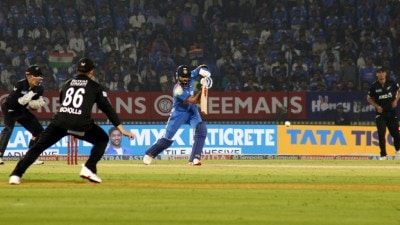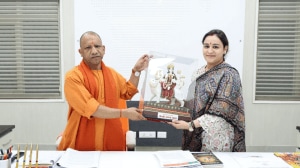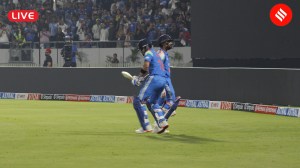Historian146;s dilemma
Can we remember without commemorating, recollect without celebrating; recall without avenging?

COMMEMORATIVE years are bad times for practising historians. During such hooplas both the Republic and 8220;the public8221; make demands for the equivalent of historical 8220;item numbers8221;. As that Hindi film song has it: 8220;yeh jo public hai, sab janti hai.8221; The public, especially when it comes to national, sectarian and majoritarian pasts, has been knowing 8212; as we say on the subcontinent. It is at such commemorative junctures 8212; when history demands, nay commands our attention 8212; that history writing suffers, and historians face a veritable dharm-sankat. Either they should carry on sticking close to their savdharm, competing for the readers8217; assent to the reasonableness of their stories about various kinds of times past, different from the collective and segmented presents we inhabit today. Or they should, so to say, fall in line: either as heralds, or as committee-men, proffering a diplomatically-worded resolution to a pressing national celebration embroiled in the passions of the present. In either case they risk devaluing their craft, and the real achievements of the discipline, for historians8217; history should never be made to order, or indeed ordered about.
This is not to say that historians should function merely as couriers of factoids or as whistleblowers, rebuking sharply the public and the politicians when they get their facts wrong. As the discipline of history has moved away from a rigid empiricism of yesteryear, we are often in a position to establish not just what happened in the past, but also how memory plays on the certitude of facts, why a belief about an event persists despite evidence to the contrary, or why national commemoration almost of necessity alters the particular happenings that it wishes enshrined in our collective memory. Let8217;s take two of the three memorialisations 75 years of the hanging of Bhagat Singh and the 150th anniversary of 1857 that a bloated apex committee has taken charge of, to a good deal of public criticism about its purely political composition.
One of the enduring Delhi-based stories about Bhagat Singh, repeated recently in this newspaper, is that he was incarcerated in the basement of the Old Viceregal Lodge after the Viceroy had vacated it in 1931 for his palatial residence on the Raisina acropolis in Lutyen8217;s New Delhi. True, the fledgling Delhi University could not move immediately into the main part of the Old Viceregal Lodge, for the Imperial Government had decided in April 1931 to commandeer the dwellings assigned to the University for the 8220;Delhi Conspiracy Commission8221;. The trial of the 14 accused charged with conspiracy to commit murder and with other arms and explosives offences started in the main block of the Old Viceregal Lodge on April 15, 1931. Bhagat Singh, the iconic bomb-throwing revolutionary nationalist, had been hanged three weeks earlier on March 23, 1931.
What then accounts for the lasting belief linking Bhagat Singh and the empty viceregal wine cellars, inherited and restored by the University of Delhi? That the same Criminal Procedure Punjab Amendment Act rushed to speed up the trial of Bhagat Singh was made applicable to the 14 Delhi conspirators. That the special commissioners tried this second case almost immediately after the trial of Bhagat Singh, and of course the fact that our 8220;terrorist8221; accused were brought regularly to that vacant Viceregal Lodge and then taken back to the Delhi jail for the 22 months that this unsuccessful trial lasted. Is it improper in this anniversary year to make Bhagat Singh yield a little space to the unfamiliar 8220;political terrorists8221; Dhanwantri, Vaishapayan and twelve others who escaped judicial hanging for a variety of contingent reasons?
Or take the announcement that the celebrations of a century and a half of 1857 would commence from August 2007. Though crucial for 1942 and again 1947, August was not a particularly good month for us Indians in 1857, especially in Delhi which fell to the vengeful firangis soon afterwards. The announcement is propelled no doubt by the desire of annexing the events of 1857 to our freedom from Britain almost to the month. Is there something inherent in the ways of nation states that makes its difficult for its officials and citizens to relate to history outside a mainstream yet truncated version of the past 8212; the national past? Can we at all remember without commemorating? Can we recollect without celebrating; recall without avenging?
Even our national anthem, to say nothing of the national song, and dare one say the national bird have evolved in recent, middling and distant pasts. When in 1950 Maulana Azad, independent India8217;s first education minister, wrote an official note in Urdu in his clear hand about the need, as in France, of inculcating a spirit of affinity with the anthem in our schools, it took time and effort to take shape. First the copyright of the song had to be transferred to the nation, and besides the existent three-and-a-half-minute 78 rpm gramophone recordings had to be primed to the 52 second official version.
Till very recently the NCERT Hindi language books had a militantly nationalist poem that had to be memorised by 10-12 year olds. A stanza that sticks in my mind as I recall my 12-year-old son struggling over it was: 8220;I surrender my mind, my body, each and every twig trin-trin from my nest I surrender to you the country of my birth8221;. I disagreed when I tried to bring home the meaning of the word 8220;trin-trin8221; by referring to a regional political party. I disagree more as I write now. For it is a historian8217;s view that the nation can never be made habitable by ruining the many dwellings where the peoples of India have nestled historically 8212; with and without conflict.
The writer is a professor of history at Delhi University, and author of 8216;Event, Metaphor Memory: Chauri Chaura, 1922-19928217;
- 01
- 02
- 03
- 04
- 05































